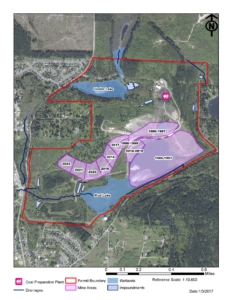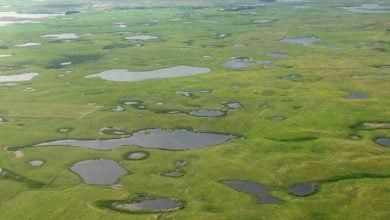
The Trump administration has made a broad commitment to advancing the interests of mining companies and other extractive industries over the needs of our ailing environment. The John Henry Coal Mine in Black Diamond, Wash. could be the next to reopen. The Trump administration has declared the impact on the local environment — only a few miles east of the city of Seattle — from the notoriously dirty mining process to be “little to none.”
The John Henry Mine project, which has been under consideration by federal authorities since 2011, got a sudden boost from the Trump administration as part of its wholesale embrace of coal mining. The Office of Surface Mining Reclamation and Enforcement under Acting Director Glenda Owens gave the operation an important preliminary approval in September when an official finding was released by OSMRE stating that resuming mining operations at John Henry would have “no significant impact on the environment.”
Owens has been appointed to the Acting Director post twice before, once in 2001 under Bush and in 2009 under Obama. In all three administrations she has pursued a policy of relaxed restrictions and a deprioritization of environmental concerns in favor of short-term profit opportunities. This continuity in policy between Republican and Democratic administrations highlights in the clearest terms the agreement of both parties on their priorities regarding the environment. When a choice between sound environmental policy and lucrative profits is concerned, both parties choose profits over safeguarding the environment.
The environmental impact on the Seattle area is set to multiply in the wake of news that the coal is slated to be burned at the Ash Grove Cement Company works, located in south Seattle.
The cement production process at Ash Grove relies on a variety of cheap and environmentally disastrous fuel sources which frequently includes coal as well as petroleum coke and whole tires.
The Pacific Coast Coal Company has been mining in the northwest for over a century. The John Henry Mine was originally opened by the PCCC in 1986 and continued in operation until 1999. The privately-owned company has determined that in spite of the severe environmental ramifications, which it publicly denies, the considerable reserves of coal that remain to be exploited on this privately held tract of land are going to be extracted and sold. That the product of this anachronistic process will be burned right before the eyes of Seattleites crossing the West Seattle Bridge is an insult added to their injury.
David Morris, General Manager of Pacific Coast Coal Company, holds the concerns of environmental advocates in contempt. In a recent interview with the Seattle Times he dismissed out of hand the issues raised over the outmoded fuel source and its impact on King County, saying “It’s a legitimate business that’s legal,” and lamenting that he “doesn’t know why people think they have to stick their nose in everyone else’s business.” By falling back on the mere legality of mining and burning coal, Morris tacitly admits the lack of any other justifiable claim in favor of this environmentally disastrous process.
A permit to begin mining has not yet been issued, but this final stage in the approval process seems to many as a foregone conclusion given the rapid pace of approval under the Trump administration. Just as other coal mining sites in Appalachia and elsewhere in the eastern United States have seen a broad rollback of environmental protections and a green light for mining companies to begin extracting coal on a large scale again — the same is expected for the John Henry Mine.
Some nominal resistance to the plan has been offered by King County Executive Dow Constantine, who has correctly pointed out that coal mining and the burning of coal are categorically harmful to the environment. Constantine has pledged to do “everything I can legally and politically to prevent us from having to suffer the impacts of coal mining in King County,” but such significant hedges fall far short of a promise to prevent this project from moving forward, in addition to ignoring the impact on outlying counties and states, or the Earth as a whole, as a consequence of mining coal.
Such token resistance can hardly be considered an effective barrier against the destruction of the environment for the sake of the personal enrichment of a handful of capitalists who, in the case of Pacific Coast Coal Company, have been at this business for generations. The existing state in general is incapable of providing any real resistance to the forces of industry because it is designed to serve those interests. At this late stage, after so much damage has been done to the Earth and its ecosystems, only coordinated state planning on a socialist basis and on a global scale can avert a total ecological disaster. The continued pillaging of the land in the pursuit of profits for a tiny few cannot continue if the human race is to survive, and yet this episode clearly shows that a capitalist society led by a capitalist state is incapable of preventing it from happening.






